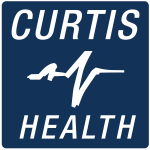“27% of Canadian workers claim to have high to extreme levels of stress daily”.
While some stress is unavoidable, prolonged stress increases the risk of depression, heart disease, and substance abuse. Wouldn’t it be lovely if no one had to stress out over work, finances, lack of time, health issues, or family and relationships? The reality is that we can’t eliminate these often-stressful situations, but we can help to prevent some of the damage that long term stress can have on our body and mind.
1. Deep Breathing: This seems obvious, but it’s been shown to help in the treatment of burnout, headache, chronic fatigue, concentration problems, anxiety and phobia, panic disorder, depression, and heart disease. Try taking a long deep breath and notice how your muscles begin to relax, and your mind begins to quiet. Breathing exercises can be done anywhere and they help to reverse your stress response.
Try this: Sit comfortably. Place one hand on your stomach just below your ribs, and one hand on your chest. Take a deep breath through your nose, and feel your stomach push your hand away, without moving your chest. Exhale through your lips like you’re about to whistle. Repeat slowly 3-10 times.
2. Guided Imagery: This is a wonderful way to give yourself a quick vacation, wherever you are. Focus your mind on an environment that you find relaxing. Maybe it’s a beach you’ve napped on while listening to the ocean. Pay attention to the sounds that you would hear in this place, the smells, even imagining how your skin feels, maybe it’s being warmed by the sun.
3. Exercise: Exercise and stress management are closely linked. Exercise provides a distraction, an outlet for frustration, and gives you a lift via endorphins. Exercise also “appears to be an effective treatment for depression, improving depressive symptoms to a comparable extent as pharmacotherapy and psychotherapy”.
Article by Nicole Wutschnik Certified Personal Trainer and Group Fitness Instructor
http://www.statcan.gc.ca/pub/11-627-m/contest/finalists-finalistes_2-eng.htm
https://www.ncbi.nlm.nih.gov/pmc/articles/PMC3674785/



